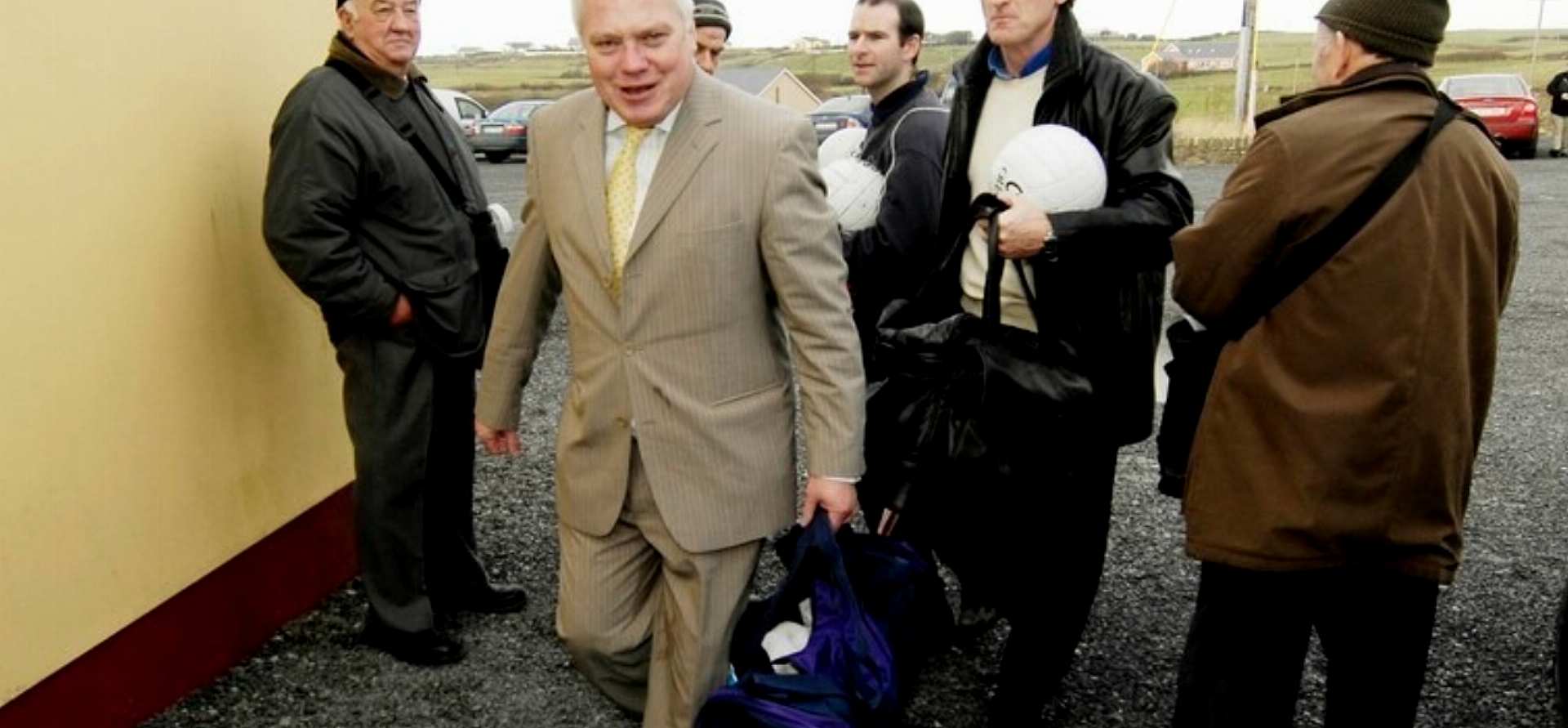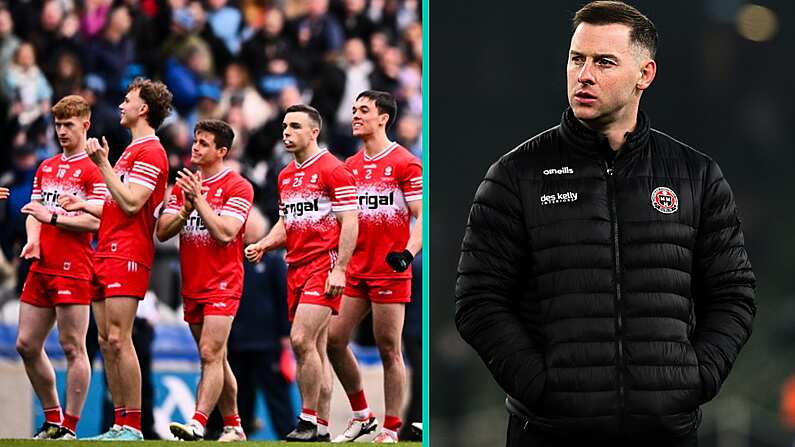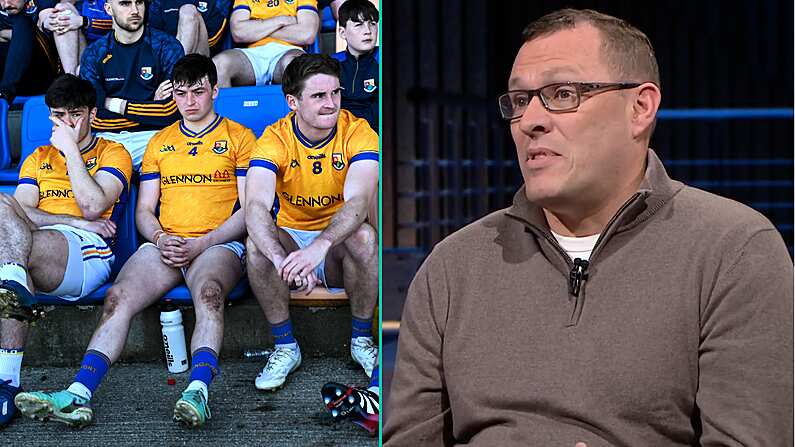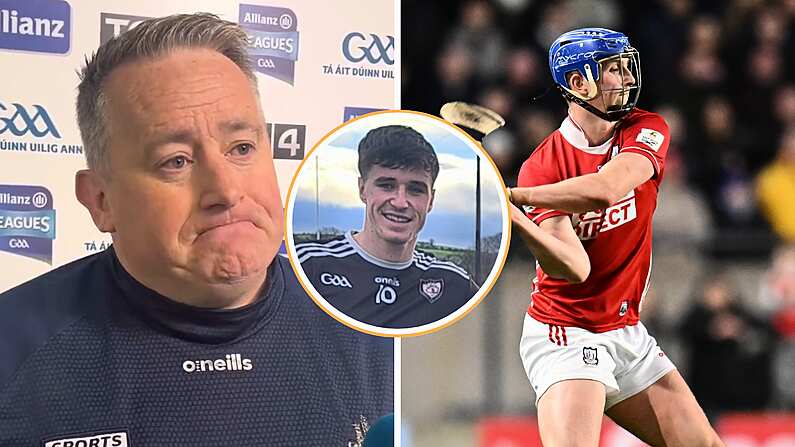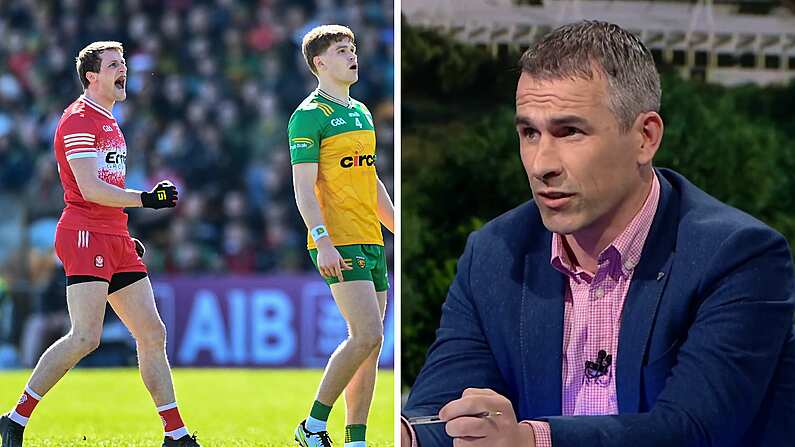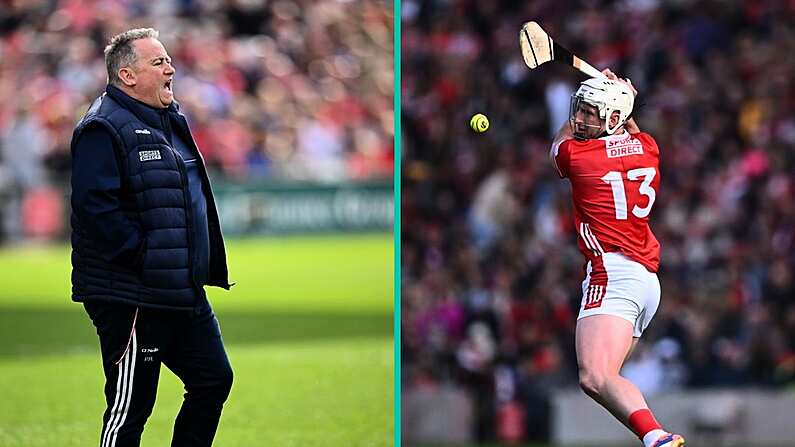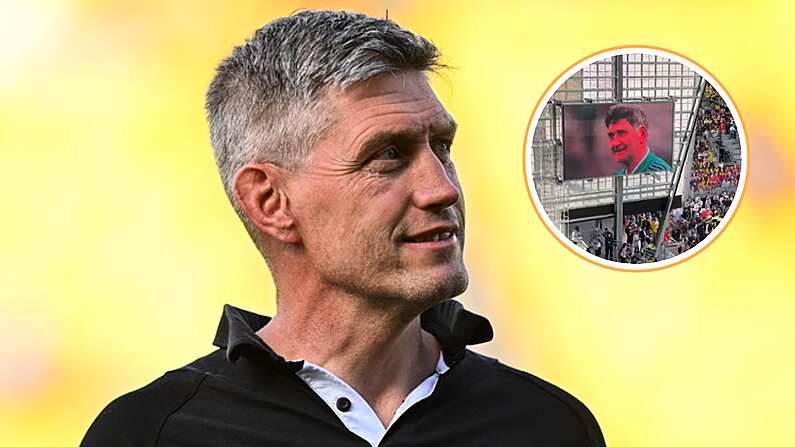It was a disappointing end, with Páidí Ó Sé alone with his thoughts as he walked up the sideline, one more time. The final time.
Cusack Park in Ennis, the empty town end terrace in front of him in the distance, while to his left there was no one left in the grandstand either.
14 July, 2007 and a Tommy Murphy Cup semi-final against Antrim that his Clare team had just lost by 1-11 to 0-10.
It was the second time in a couple of years that the place had been the graveyard of Páidí’s football ambitions — two years to the month previously the Westmeath team he had guided to a historic first-ever Leinster title in 2004 crashed out of the All-Ireland championship to Clare.
Now on a Saturday afternoon and very far removed from the crowds that had been in Páidí’s slipstream along the journey of his great career — the eight All-Irelands, the five All-Stars, the captaincy in ‘85, the tearaway footballer turned maverick manager, the craic in Krugers Pub in Dunquin, then his own pub in Ventry, with Charlie Haughey and all that — had evaporated and there were less than 100 present and it was all over.
“I have no idea where I go from here,” he said ruefully afterwards.
It wasn’t supposed to be like this for Páidí’s last dance with management. Instead, the fitting denouement to an inter-county involvement — one that started all the way back in July 1971 when as a 16-year-old he made his minor debut as a sub for the legendary Paddy Bán Brosnan’s son Pat — was going to be different.
Fifteen years on from the high watermark of Clare football history when Clare beat Kerry in the 1992 Munster final and ten years after Clare ran the Kerry team Páidí managed to four points in the Munster Final, the ‘Ventry Sentry’ was going to bring back the good times for the big ball in the Banner.
At least, this was the hope that floated over a few weeks that straddled late 2006 and early 2007.
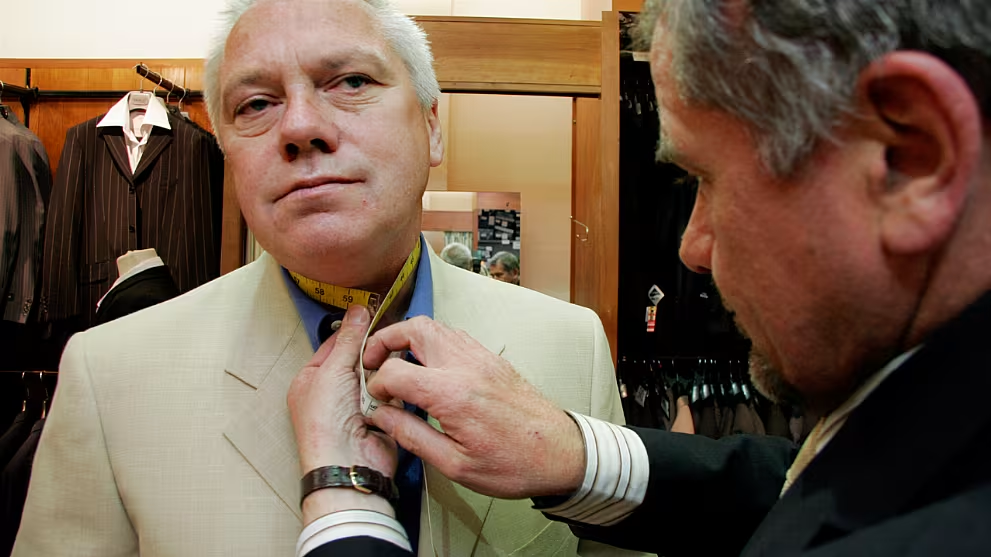
Páidí Ó Sé is fitted for a suit in Pa Bourke's menswear in Ennis on the day before Charlie Haughey's funeral. Photo by Joe O Muircheartaigh
READ MORE ABOUT PÁIDÍ Ó SÉ
'He Was Ahead Of His Time. He'd Go To Bed For A Couple Of Hours During The Day'
Remembering Dolly Parton's Madcap Visit To Páidí Ó Sé's Pub In 1990
'I Scored 0-10 From Play, He Rang That Evening To Drop Me' - How Páidí Ó Sé Drove Westmeath To Glory
'8 Medals In The Biscuit Tin': Páidí Ó Sé, The Man And The Myth
'They wouldn’t leave the pub without getting yes for an answer'
It started when the chairman of the Clare County Board, Michael McDonagh, who was a Garda like Páidí before him took a punt and travelled to Ventry on a whim with Clare’s delegate to GAA Central Council, Tom Downes in tow.
“Tom knew Páidí from Munster teams in the Railway Cup and I felt it was worth a chance,” recalled McDonagh. “We’d no manager, he’d finished with Westmeath the previous year and he had been successful with every team he was with. Why not bring him to Clare?”
McDonagh and Downes landed in Páidí’s bar in Ard an Bhóthair, got a traditional West Kerry ‘fáilte isteach’ and then talked football — initially, Páidí was reluctant but the more talk the more he gradually warmed to the challenge put before him.
The prospect of walking the line once more; as he’d say himself being ‘i lár an aonaigh’ [in the middle of the action] and working his magic one more time.
“He loved football so much,” said McDonagh, “and that was our pitch. Football was everything and he liked Clare and we talked him around to take it on”.
Páidí admitted so himself:
“I didn’t contemplate coming back into management at all in any shape or form, but the itch got a hold of me and Clare people came down to me,” he revealed. “They wouldn’t leave the pub without getting yes for an answer so, I told them I’d give them a 90 per cent commitment, I had to check it out with the family. So I got the green light from the boss, which is my wife. And away we go and we have a go at it”.
But before the football, there was the theatre, because apart from being one of football’s greatest, Páidí was a showman and once his mind was made up he seemed determined to put on a show.
He didn’t helicopter it to Clare, like he did when making his maiden voyage to Westmeath for his public unveiling in the Greville Arms Hotel in Mullingar — instead, it was by road to the Temple Gate Hotel in Ennis for what can only be termed as a remarkable introduction to Clare football.
The Mullingar masses may have been missing [which in hindsight was a warning about what was coming down the tracks] but it didn’t stop Páidí causing a stir as he took his place at the top table of the function room that in a previous life was a chapel in the Sisters of Mercy Convent that once occupied the site.

Páidí Ó Sé walking the line in Cusack Park in July 2007 on his last day in inter-county management. Photo by Joe O Muircheartaigh
In this unique setting, Páidí gave his sermon from the mount, and it was a panegyric that football, not to mind Clare football, had never seen before as he ran the gamut of the county’s history in trying to rouse himself and those around him to the task at hand.
“Clare gave us the very founder of the GAA in Michael Cusack,” he began. “Clare also nurtured great heroes and characters from Brian Ború to Máire Rua. Clare has attracted famous Kerrymen – even the great Daniel O’Connell.”
And on it went:
“The Clare cry of support and victory is proverbial – its tradition of music, dance, song and story, poets and scholars from Brian Merriman to Eugene O’Curry and Willie Clancy are household words in Ireland and in many places abroad. I am very proud to be invited to be part of the sporting life of Corca Baiscinn and Dalgais.”
It was powerful as it was emotive — and everyone was impressed.
“In a few years time when we’re leaving Croke Park after contesting an All-Ireland senior final, people will be saying, ‘were you in Ennis on the day of the big wind when Páidí arrived in County Clare’,” gushed Noel Walsh, a former candidate for the presidency of the GAA and a selector when Clare won the 1992 Munster final.
“His personality will bring the best out in Clare football. Crowds will come back to Clare football again. Instead of there being 200 people at our first National League game against Leitrim in Cusack Park, there will be 3,000 to 5,000. Anything is possible,” he added.
“I like to be involved in the game – I live for it,” said Páidí. “I live for it and I’m going to give it my all. I have no doubt in my mind that Clare footballers’ hearts are in the right place. I’m very emotionally moved by being back in management,” he added.
'The Tommy Murphy Cup didn’t do it for Páidí'
And when this emotion carried itself onto the field and Clare’s Division 2B campaign started with a couple of wins, it seemed if as something was stirring.
First came a 0-17 to 1-9 win over Carlow in Dr Cullen Park and then a 1-14 to 1-9 triumph over Leitrim in Cusack Park. “Tús maith,” said Páidí hopefully — alas the rest of the old Irish proverb that said “leath na hoibre” never came to pass.
These early victories were as good as it got — in the league and in anything. Instead of being a launchpad to build up a head of steam and challenge for promotion before carrying onto championship, it all began to unravel.
“The defeat to Offaly in Tullamore was the one,” remembered Michael McDonagh. “Had we won that day, we could have been in the promotion mix, but the defeat knocked us back a lot and it kind of fell apart after that”.
The only other league victory was against London, while the 1-6 to 0-7 defeat to Waterford in the Munster Championship was the nadir — it was the Deise’s first win in the championship in 19 years.
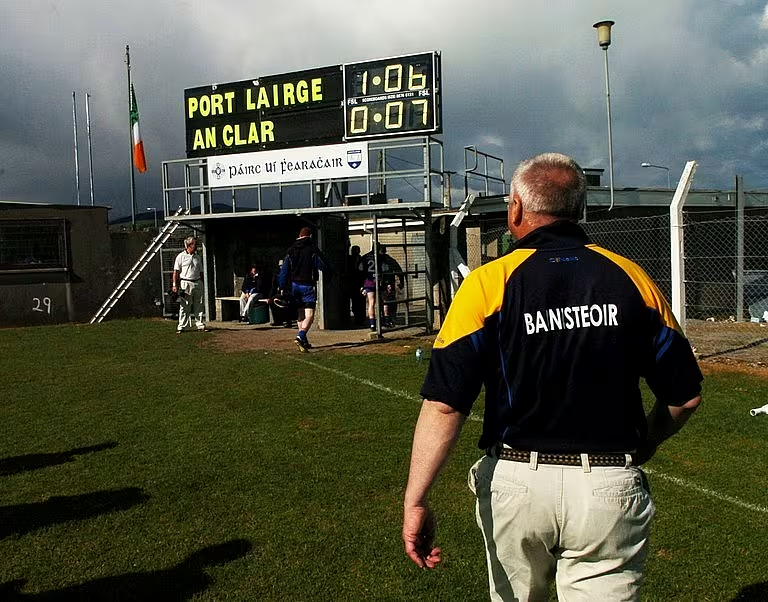
20 May 2007; Clare manager Paudie O'Shea leaves the field after the final against Waterford. Bank of Ireland Munster Senior Football Championship Quarter-Final, Waterford v Clare, Fraher Field, Dungarvan, Co. Waterford. Picture credit: Matt Browne / SPORTSFILE
“It didn’t help that there was no back door that year,” said McDonagh, “because maybe then we might have lifted it, but the Tommy Murphy Cup didn’t do it for Páidí. Anyway, Clare had won it in 2004, and the Tommy Murphy Cup wasn’t going to do it for Clare.”
That’s why when Antrim turned them over in the semi-final, you knew Páidí was walking the line for the last time.

Páidí Ó Sé on his final match in intercounty management v Antrim. Photo by Joe O Muircheartaigh
“I believe that you need somebody from within the county at the moment,” he said as he departed Clare after just eight months.
It had come to this after all the hope that floated from that rendezvous with Páidí in Ard an Bhóthair.
Hope that even prompted an anonymous letter to the offices of The Clare People newspaper with the following football prayer:
“Our Páidí who art from Ventry, hallowed be thy name, thy Banner come, thy will be done, in Clare as it is in Kerry. Give us this day our Munster Cup, and forgive our doubters, as we forgive those who lose against us, and lead us not into temptation, but deliver us Sam. Amen.”
A prayer that went unanswered!
Not that this footnote was ever going to take from everything that had gone before in Páidí's larger-than-life football story.


